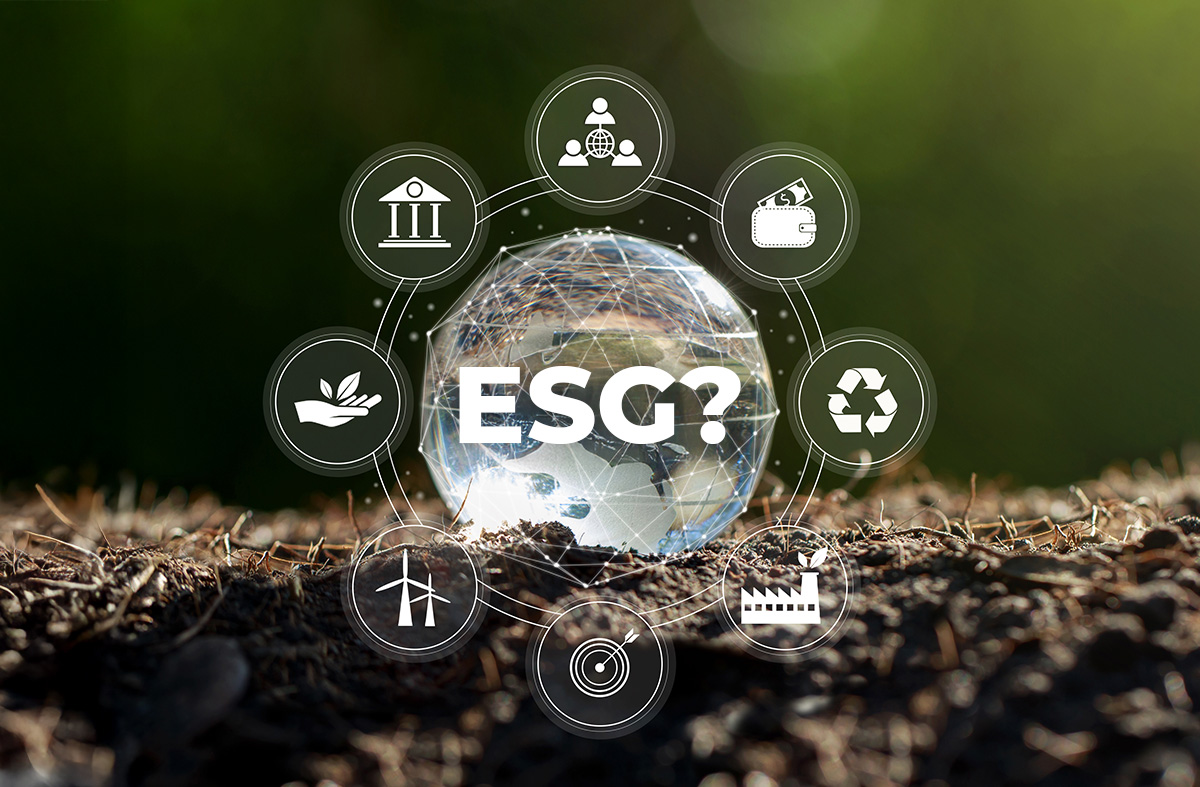The world of investing is at a crossroads. Environmental, Social, and Governance (ESG) investing, once lauded as the future of conscientious capitalism, is facing a period of intense scrutiny. Political debates and a shifting regulatory landscape in 2025 have left many investors wondering if their ESG-focused portfolios are still on the right track.
In recent years, the ESG movement has gained significant momentum, empowering investors to support companies that align with their ethical and social principles. However, the tide is turning. A more critical lens is now being applied to ESG with questions arising about its tangible impact, its effect on financial returns, and even its ideological underpinnings. This has led to a complex and often confusing environment for investors.
At Qopia Financial, we help you assess the alignment of your investments with your values, ensuring your financial plan brings you peace of mind without compromising your financial goals.
What Is ESG Investing — And Why Is It Under Scrutiny?
ESG investing integrates non-financial factors into the investment decision-making process, such as:
- Environmental: carbon emissions, resource use, sustainability
- Social: employee relations, community impact, diversity and inclusion
- Governance: executive pay, board structure, ethical business practices
This approach gained traction among investors who sought to generate returns while reflecting their values. And it wasn’t just idealism — early data showed ESG-aligned funds often performed on par with, or better than, traditional benchmarks.
But in 2024–2025, ESG became a lightning rod for controversy.
The Shift: From Growth to Skepticism
- In the U.S., many states passed anti-ESG legislation, blocking public funds from considering ESG factors in investment decisions.
- In Canada, regulators have tightened disclosure rules to combat “greenwashing” — when funds claim to be ESG-aligned without meeting measurable criteria.
- Globally, investors are reassessing their ESG strategies in light of inconsistent definitions, shifting compliance burdens, and performance variability in a higher interest rate environment.
For investors, the question is no longer just “Do I care about ESG?”
It’s “How do I invest responsibly — without being misled or sacrificing returns?”

A Time for Reflection: What Truly Matters to You?
This period of reckoning presents a valuable opportunity for investors to pause and reflect on their strategies. Before making any portfolio decisions, it’s crucial to look inward and define what “values-aligned investing” truly means to you. Consider the following:
- Identify Your Core Principles: What specific environmental, social, or governance issues are most important to you? Is it climate change, water scarcity, employee well-being, diversity and inclusion, or corporate transparency?
- Prioritize Your Concerns: It’s unlikely that any single investment will perfectly align with every one of your values. Rank your priorities to help guide your investment decisions.
- Determine Your “Shades of Green”: ESG Investing isn’t a monolithic concept. It exists on a spectrum. Are you comfortable with a “best-in-class” approach, investing in companies that are leaders in their sector on ESG metrics? Or do you prefer a more stringent “negative screening” approach, excluding entire industries such as fossil fuels or tobacco?
Aligning Your Portfolio Without Sacrificing Performance
The good news is that aligning your investments with your values doesn’t have to mean sacrificing returns. A thoughtful approach to ESG can be a powerful tool for managing long-term risks and creating value. Here’s how to approach it:
- Focus on “Double Materiality”: This concept is gaining traction in the investment world. It involves assessing not only how ESG issues might impact a company’s financial performance (financial materiality) but also how the company’s operations impact society and the environment (impact materiality). A company that effectively manages both is likely to be more resilient and sustainable in the long run.
- Look Beyond the Label: The term “ESG” itself is becoming less important than the underlying principles. Don’t get caught up in the acronym. Instead, focus on understanding a company’s commitment to sustainability, responsible practices, and strong governance.
- The Power of Engagement: Being an investor gives you a voice. Consider engaging with the companies in your portfolio through proxy voting or shareholder resolutions to encourage more sustainable practices.
- Diversification Remains Key: As with any investment strategy, diversification is crucial. A well-diversified portfolio of high-quality companies with strong Environmental, Social, and Governance (ESG) characteristics can help mitigate risk and enhance long-term returns.

The Crucial Role of Your Financial Advisor
Navigating the complexities of the current ESG landscape requires expertise and a deep understanding of your personal financial goals. A qualified financial advisor can play a vital role in:
- Helping you articulate your values and investment objectives.
- Conducting thorough due diligence on ESG funds and companies.
- Building a diversified portfolio that aligns with your values and risk tolerance.
- Staying abreast of the evolving regulatory landscape and its potential impact on your investments.
The “ESG Reckoning” is not the end of values-aligned investing. Rather, it’s a maturation of the market. It’s a call for greater clarity, more robust data, and a more thoughtful approach from investors. By taking the time to understand your values and working with a trusted advisor, you can build a portfolio that not only helps you achieve your financial goals but also contributes to a more sustainable and equitable world.

Qopia’s Approach: Values-Based, Risk-Aware, Results-Driven
At Qopia Financial, we don’t believe in performance trade-offs for doing the right thing. We integrate ESG data alongside traditional financial analysis to build portfolios that are:
- Aligned with your personal ethics
- Resilient to market shifts and reputational risk
- Designed for strong, long-term performance
Our Process Includes:
- A personalized values discovery conversation
- ESG screening based on your chosen priorities
- Collaboration with leading impact investment platforms
- Ongoing monitoring and rebalancing to stay on course
Since we’re independent, we’re not limited to a single fund family or platform.
We believe in a holistic approach to wealth management that integrates your values with sound financial planning. Contact us today to learn more about how we can help you navigate the evolving world of ESG investing and build a portfolio that truly reflects what matters most to you.







